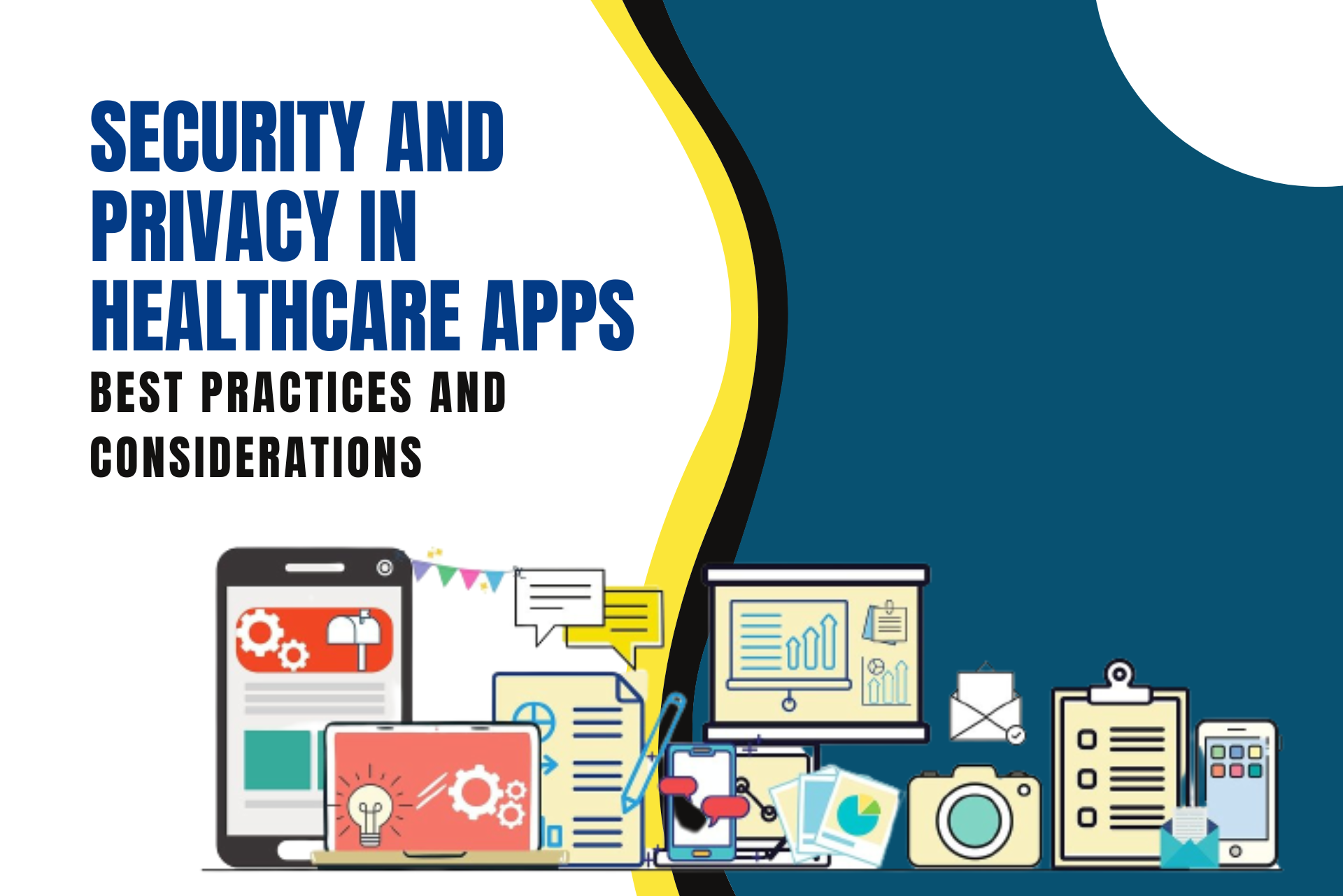Security and Privacy in Healthcare Apps: Best Practices and Considerations
In today’s ever-evolving digital landscape, the integration of technology into the healthcare sector has brought about revolutionary changes in the way medical services are provided. Mobile healthcare applications, or healthcare apps, have become increasingly popular, offering users the convenience of accessing medical information, monitoring their health, and even consulting with healthcare professionals at their fingertips. However, with this convenience comes the pressing concern of security and privacy.
At BharatLogic, we understand the paramount importance of safeguarding sensitive medical data and ensuring utmost privacy for patients and healthcare providers alike. In this article, we will delve into the best practices and crucial considerations to develop secure and privacy-centric healthcare apps that can outperform others in the digital realm, ensuring your peace of mind and empowering your users with confidence.

best practices and crucial considerations to develop secure and privacy-centric healthcare apps
-
Emphasizing Data Encryption and Secure Authentication
One of the primary pillars of ensuring security in healthcare apps is robust data encryption. Implementing end-to-end encryption for all data transmissions guarantees that sensitive medical information remains protected from unauthorized access or interception. This practice not only strengthens data security but also aligns with industry standards and regulations.
Moreover, a secure authentication process is vital to prevent unauthorized access to the app and its underlying data. Multi-factor authentication, biometrics, or two-step verification can significantly bolster the app’s defenses against potential cyber threats, ensuring only authorized users can access confidential medical information.
Statistics on Security and Privacy in Healthcare Apps
Rising Concerns of Data Breaches:
The OneTouchPoint data breach impacted over 30 healthcare providers and health insurance companies, highlighting the potential scale and reach of such security incidents in the industry.
According to IBM, the average cost for a data breach involving 50 million to 65 million records is more than $400 million.
Importance of Encryption:
Encryption is a critical component of data security in the healthcare industry. Approximately 30% of the world’s data volume is generated by the healthcare industry.

Encryption is a critical component of data security in the healthcare industry. Approximately 30% of the world’s data volume is generated by the healthcare industry. Source: RBCCM
Impact of Mobile App Security:
An in-depth analysis of more than 20,000 health-related mobile applications (mHealth apps) published by The BMJ today finds “serious problems with privacy and inconsistent privacy practices.”
Also Read: Choosing the Right Platform for Your Healthcare App Development
-
Complying with Regulatory Standards
Compliance with relevant healthcare regulations, such as the Health Insurance Portability and Accountability Act (HIPAA), is non-negotiable. Our team at BharatLogic strictly adheres to these regulations and takes the necessary steps to ensure our healthcare apps are fully compliant, protecting both patient data and the reputation of your healthcare institution.
-
Regular Security Audits and Updates
Security threats are ever-present and continually evolving. To stay ahead of potential vulnerabilities, regular security audits and updates are paramount. Our dedicated team of experts consistently monitors and assesses the healthcare apps we develop, ensuring that any identified weaknesses are promptly addressed and rectified, guaranteeing top-notch security.

How to provide the proper healthcare app security?
-
Secure Cloud Infrastructure
Leveraging the power of the cloud offers numerous benefits, but it also introduces potential security risks. Choosing a reputable and secure cloud service provider is essential to safeguarding data integrity and privacy. Our team at BharatLogic works with trusted cloud partners to provide a reliable and secure infrastructure for healthcare apps, giving you peace of mind regarding your data.
Also read: Cost of Developing a Healthcare Mobile App in 2023
-
User Education and Transparent Privacy Policies
Educating users about potential security risks and promoting safe practices while using the healthcare app can foster a security-conscious user base. Additionally, transparent and easily accessible privacy policies build trust with users, assuring them that their data is handled responsibly and ethically.
-
Regular Backups and Disaster Recovery Plans
Despite robust security measures, unforeseen events can still occur. Regular data backups and comprehensive disaster recovery plans are essential to ensure that data is recoverable in case of emergencies or cyber-attacks. Our team ensures that all necessary precautions are in place to protect your valuable data effectively.
-
Constant Monitoring and Incident Response
A proactive approach to security involves continuous monitoring of the healthcare app’s performance and potential security breaches. In the unfortunate event of a security incident, having a well-defined incident response plan in place can mitigate the impact and enable swift action to resolve the situation.
Also read: Detailed Introduction of Hospital Management System
Conclusion
At BharatLogic, we are dedicated to delivering cutting-edge healthcare apps that prioritize security and privacy without compromising functionality and usability. Our commitment to excellence and adherence to industry best practices set us apart, ensuring that your healthcare app can surpass competitors and establish itself as a trusted and reliable solution in the market.
Frequently Asked Questions (FAQs) – Security and Privacy in Healthcare Apps
Question: Why is security crucial in healthcare apps?
Answer: Security is paramount in healthcare apps as they handle sensitive medical data. Robust security measures protect patients’ information from unauthorized access and data breaches.
Question: What are the best practices for securing healthcare apps?
Answer: Best practices include data encryption, secure authentication, compliance with regulations like HIPAA, regular security audits, and using a secure cloud infrastructure.
Question: How can I ensure my healthcare app complies with regulations?
Answer: Work with experienced developers who understand healthcare app compliance, conduct thorough testing, and validate adherence to relevant regulations.
Question: Is it possible to make healthcare apps hack-proof?
Answer: While robust security measures are crucial, no app can be completely hack-proof. However, following best practices and constant monitoring can significantly reduce risks.
Question: What steps should I take in case of a security incident with my healthcare app?
Answer: Have a well-defined incident response plan, identify the breach, contain the impact, notify affected parties, engage cybersecurity experts, and cooperate with regulatory authorities.

